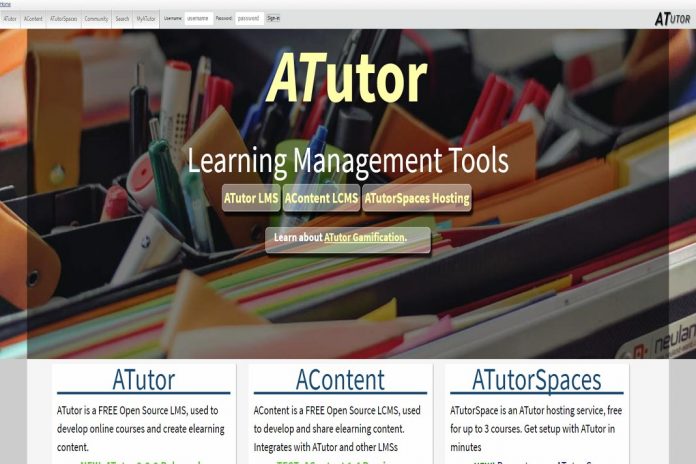

Inclusive Design Research Centre (IDRC/IDI): ATutor (2010), International Organization for Standardization (ISO): ISO/IEC 24751 Information technology – Individualized adaptability and accessibility in e-learning, education and training (2008) IMS Global Learning Consortium: IMS Learning Information Package Accessibility for LIP (2002), Journal of Interactive Instruction Delivery 16(4), 3–10 (2004)

IEEE Journal of Internet Computing 11(3), 19–27 (2007)īarron, J.A., Fleetwood, L., Barron, A.E.: E-Learning for Everyone: Addressing Accessibility. Keywordsĭevedzic, V., Jovanovic, J., Gasevic, D.: The Pragmatics of Current E-Learning Standards. In order to offer enhanced accessibility, some adjustments have been applied in the implementation phase, as the paper describes. Their actual implementation in the LCMS ATutor reinforces considerations about inconsistencies and points out some aspects which may otherwise not be glaring. This paper explores questions and perspectives about the implementation of two accessibility standards in an e-learning platform, achieving inclusion both of the standards and their goals to provide accessibility. Applying and implementing such standards reveals their capabilities to definitively satisfy their goals, beyond the authoritative principles they implicitly carry on. Standards related to the Internet and its applications are explicit sets of requirements to be satisfied. They represent a pattern, a paradigm, or an archetype to be wrapped around some kind of reality. Standards are typically conceived as a means of inclusion, where the term inclusion can refer either to an economic scenario or a social one.


 0 kommentar(er)
0 kommentar(er)
